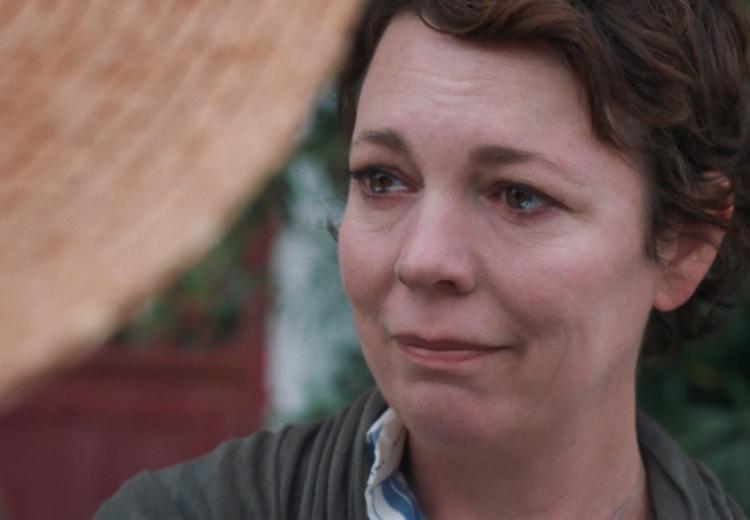Maggie Gyllenhaal leads us down a few false paths in The Lost Daughter. She takes the time for us to get to know the complex character Leda and addresses it with immense sensitivity, the pressure that weighs on mothers. But unfortunately, motherhood is not always synonymous with happiness. The way the main protagonist ( Leda, the mother) interacts with people is surprising; there’s something wrong with her that you can’t put into words.
“Leda’s character is immensely endearing as a maladjusted mother. An unnatural mother. A bad mother? What weight do these words have in a woman’s life? How do you cope when you realise that you can’t? Or even – the ultimate taboo – that you don’t want to make it?”
Indeed in my book How To Get Out Of Your Own Way, I describe a coaching story by Claire.
Claire was the head of a business line. When I saw her, she had been with the company for ten years, having started there as a graduate. She was later promoted and was in the thick of it when the company transformed from a small start-up to a major international organisation. The CFO relied heavily on all the heads of business lines, especially Claire, as she successfully implemented new systems and processes.
Claire returned after a six-month maternity leave to find that things had changed dramatically at work. She started feeling uneasy in her role and became increasingly isolated at work, excluded from get-togethers, meetings, and important decisions. This left her feeling unhappy and professionally snubbed, as she loved her job, team, and peers. Having a baby is both delightful and demanding and can bring even the fiercest woman to tears, not because we are weak but because we are human.
Coaching was offered to Claire by her line manager, who felt she needed support coming back to a new organisational structure and perhaps required a place to evaluate and review her own professional needs and objectives. So when we started our session, Claire spent a lot of time explaining how her boss expected so much from her, how he relied on her, and how much pressure was on her to perform.
I asked her, “What expectations do you need to manage?”
Claire had extremely high expectations of herself. She felt a strong desire to be checked in and “on” all the time at work. Demonstrating to herself, her boss, and her team that nothing had changed was trying for her. Nevertheless, things had changed. She and her partner had had a baby, and there was no denying that life and work would not be the same, for a while at least.
“My partner does not feel the same pressure. Both our lives have changed, yet having a baby feels like a career badge for him and a career burden for me.”
My question prompted her to think about how she needed to manage her beliefs about women returning after maternity leave. She had been so considerate with the women in her team, and yet for herself, she felt she had to carry on as usual. I reminded her that, at times, we forget to be kind to ourselves and that self-care is not selfish. It is the opposite. If we take care of ourselves, we do not burden others with this chore and this charge. What came through was that social beliefs of how women should behave are profoundly embedded and can enormously influence our behaviour.
I did not include the anguish of not embracing the joys of motherhood, which we discussed. Likewise, I did not include the idealised vision of motherhood that my clients face and are overwhelmed by reality to feel it’s mandatory to have children.
Motherhood is a taboo from which it is still as challenging to extricate oneself, even for the youngest women who must still suffer society’s injunction to become a mother as soon as possible. Therefore, we must recognise, discuss and be open as a society about the differences between the expectations around motherhood and the reality that it is not the child that gives rise to these feelings but what surrounds them.
“Choosing to be a mother” is a fundamental, but hidden subject.”
Women’s relationship with motherhood is changing, and too much information from society and media has made mothers feel anxious or guilty. These women do not want to have a child, telling us what made them decide.
In recent years, motherhood has taken over feminism and vice versa. The ills of pregnancy. The pregnant body. The first three months in silence, the miscarriage, and the postpartum. All these subjects are now at the heart of a rethink. It is no longer a question of embellishing the reality of pregnancy and motherhood but freeing the word about their inherent difficulties. Today, mothers-to-be and women who do not wish to become mothers have access to many documents on the subject. In addition, books, podcasts, and testimonies on social networks are becoming increasingly numerous and are part of the discussions.
What are the effects of this liberation of the word on women? Does it have an impact on their relationship with pregnancy and motherhood? I believe mothers must work towards resisting the temptation to explain or repair to present their uncomfortable motherhood as an obstacle to be overcome. “Choosing to be a mother”, a fundamental but hidden subject.”


